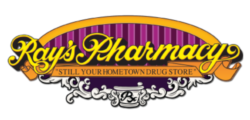FAQ
Are pharmacists allowed to give me a copy of my prescription?
Yes, a pharmacist may give you a copy of your prescription. However, a copy of a prescription may be used for informational purposes only. A pharmacist may not dispense a drug from a copy of a prescription. A pharmacist can use the information on a copy to contact your doctor for a new prescription.
Can I transfer my prescription from one pharmacy to another?
Yes, under certain conditions a pharmacist may transfer a prescription and the remaining refills to a pharmacist in another pharmacy. However, once transferred, the prescription at the original pharmacy is void and may no longer be refilled there, unless you have the prescription transferred back to the original pharmacy.
Can I return a prescription to the pharmacy?
As a practical matter, NO. Once a prescription has left the pharmacy, the pharmacist cannot be sure that the product is still safe. Therefore, in the interest of public safety, state law prohibits the pharmacist from accepting the return of a prescription drug, in whole or in part, and reusing the drug to fill another prescription.
Think of the situation this way: Would you want the medication that you purchase from the pharmacy to be medication that someone else had returned?
Can a pharmacist fill my prescription if it has been ordered by a doctor in another state or country?
Yes, under certain conditions.
Another State — A prescription for non-controlled drugs and Schedule III, IV, or V drugs issued by a doctor licensed in another state, but not licensed in Texas, may be filled in Texas, if a true doctor-patient relationship exists. Prescriptions issued for Schedule II drugs issued by a doctor licensed in another state may only be filled if the prescription is issued on an official Texas prescription form or if the pharmacy has a written plan for dispensing out of state Schedule II prescriptions approved by the Texas Department of Public Safety.
Foreign Country — Generally, prescriptions from foreign doctors may not be filled. However, a prescription for a non-controlled drug from a doctor in Canada or Mexico may be filled by a Texas pharmacy if the prescription is in writing. A prescription for a controlled drug from a doctor in Canada or Mexico may NOT be filled in
If my prescription allows refills, can I get all of the refills at one time?
No. Pharmacists may dispense only the amount of medication indicated on the prescription. Also, in making the decision to refill a prescription, the pharmacist must consider how long the medication should last (based on the directions for use and the quantity dispensed), and may refill it only after an appropriate amount of time has elapsed between refills. If you wish to receive a larger quantity of medication, the pharmacist must contact the doctor for authorization.
May a doctor authorize my prescription to be refilled indefinitely or give me an open prescription?
No. The law places time limits on prescriptions. Depending on the drug, prescriptions expire after six months or one year from the date the prescription was issued. After the prescription expires, the pharmacist must obtain authorization from the doctor to continue refilling the prescription, even if refills remain on the original prescription.
Is the pharmacist required to fill my prescription?
Occasionally, pharmacists may refuse to fill a prescription if they believe that filling the prescription is not in the best interest of your health. Some of the reasons a pharmacist may refuse to fill a prescription include:
- The pharmacist is concerned that the medication will interact badly with another drug you are taking;
- The pharmacist believes that an excessive quantity has been prescribed; or
- The pharmacist has an indication that the prescription wasn’t issued by the doctor whose name appears on the prescription.
It is the responsibility of the pharmacist to contact the doctor for clarification if they have any questions about the medical correctness or legality of a prescription. By doing this, pharmacists perform a vital, final check prior to your taking the medication.
Why does the pharmacist sometimes call my doctor before refilling my prescriptions?
A pharmacist may not refill a prescription unless the doctor has authorized it to be refilled. A doctor may authorize no refills, one refill, or several refills on the original prescription. After all of the refills authorized on the original prescription have been used, a pharmacist must obtain authorization from the doctor before the prescription can be refilled.
Even though your doctor may want you to take the prescription medication for a long time, he/she may monitor your drug therapy by requiring the pharmacist to call each time the prescription is refilled. You can assist your pharmacist and avoid delays by calling your pharmacy a few days before you run out of your medication. This will give your pharmacist time to contact your doctor for authorization to refill your prescription if all refills have been used.
Prescriptions for Schedule II medications may not be refilled. A new, written prescription is required if your physician wants you to continue to take a Schedule II medication after completion of the first prescription. If you are in doubt about the refilling of a prescription, ask your pharmacist.
Who may issue a prescription?
In Texas, only physicians (MD or DO), dentists (DDS), podiatrists (DPM), or veterinarians (DVM), may issue prescriptions. Therapeutic Optometrists may also issue prescriptions for certain topical drugs for the eye and if the optometrist is properly certified as an optometric glaucoma specialist, he/she may also prescribe certain oral medications.
Advanced practice nurses (APN), physician’s assistants (PA), or pharmacists (RPh) may issue prescriptions under a written protocol from a supervising physician. ANPs, PAs, and RPhs have received special training and education in the diagnosing and treatment of diseases.
